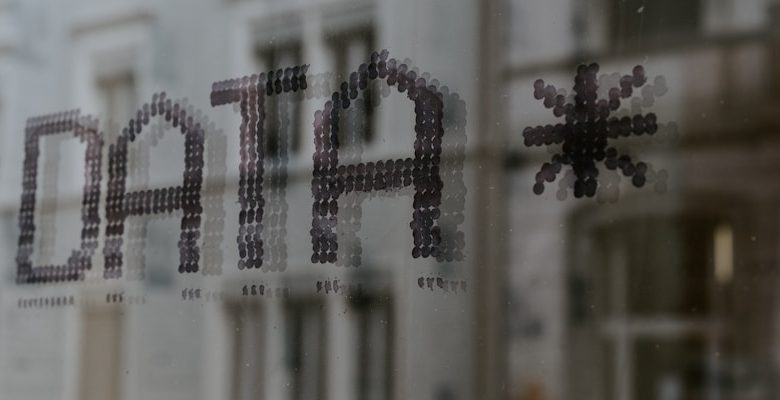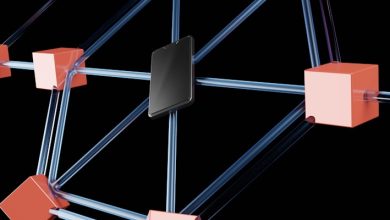The Role of Oracles in Connecting Blockchain with Real-World Data

- The importance of oracles in blockchain technology
- How oracles bridge the gap between blockchain and real-world data
- Exploring the role of oracles in decentralized applications
- The challenges of integrating real-world data into blockchain networks
- Case studies showcasing the impact of oracles in the blockchain ecosystem
- The future of blockchain technology with the advancement of oracles
The importance of oracles in blockchain technology
Oracles play a crucial role in blockchain technology by acting as a bridge between smart contracts and real-world data. They provide external information to the blockchain network, enabling smart contracts to execute based on real-time data. This connection with external sources is essential for blockchain applications to interact with the outside world and make decisions autonomously.
Without oracles, blockchain technology would be limited to only processing data within the network, severely restricting its potential use cases. By integrating oracles, blockchain platforms can access a wide range of information, such as stock prices, weather conditions, sports scores, and more. This real-world data is necessary for executing complex transactions and creating decentralized applications that require external inputs.
Oracles are responsible for validating and transmitting data from external sources to the blockchain in a secure and tamper-proof manner. They ensure the accuracy and reliability of the information being fed into smart contracts, preventing manipulation or fraud. This trustless system of verification is crucial for maintaining the integrity of blockchain transactions and upholding the transparency of decentralized networks.
How oracles bridge the gap between blockchain and real-world data
Oracles play a crucial role in bridging the gap between blockchain technology and real-world data. They serve as a communication channel that enables smart contracts to interact with external sources of information. By providing access to off-chain data such as market prices, weather conditions, and sports scores, oracles empower blockchain applications to make informed decisions based on real-time information.
Through the use of oracles, blockchain networks can incorporate external data into their operations, opening up a world of new possibilities for decentralized applications. This integration of off-chain data not only enhances the functionality of smart contracts but also increases their utility and relevance in various industries.
Oracles act as trusted intermediaries that verify and deliver external data to blockchain networks, ensuring the accuracy and reliability of the information being used. This verification process is essential for maintaining the integrity of smart contracts and preventing manipulation or fraud.
Overall, oracles serve as a vital link between the blockchain and the real world, enabling seamless communication and interaction between the two realms. Their role in connecting decentralized applications with external data sources is instrumental in unlocking the full potential of blockchain technology and driving innovation across different sectors.
Exploring the role of oracles in decentralized applications
Exploring the function of oracles in decentralized applications is crucial for understanding how blockchain technology can effectively connect with real-world data. Oracles act as intermediaries that retrieve external information and feed it into smart contracts on the blockchain. This process enables decentralized applications to access data from the outside world, making them more versatile and powerful.
Oracles play a vital role in bridging the gap between the blockchain and real-world data sources, ensuring that smart contracts can execute based on accurate and timely information. By providing a secure and reliable way to interact with external data, oracles enhance the functionality of decentralized applications and open up a wide range of possibilities for their use in various industries.
Without oracles, blockchain systems would be limited to only processing data that is generated within the network, severely restricting their potential applications. By leveraging oracles, decentralized applications can access a wealth of information from the real world, such as market prices, weather conditions, and sports scores, enabling them to automate processes and make decisions based on up-to-date data.
The challenges of integrating real-world data into blockchain networks
The integration of real-world data into blockchain networks presents several challenges that need to be addressed for seamless connectivity and reliable information flow.
One of the main challenges is the issue of data accuracy. Since blockchain networks rely on decentralized sources of information, ensuring the accuracy and reliability of this data can be difficult. This is where oracles come in, acting as trusted intermediaries that verify and validate real-world data before it is integrated into the blockchain.
Another challenge is the issue of data privacy and security. When integrating real-world data into blockchain networks, it is essential to ensure that sensitive information is protected and that only authorized parties have access to it. Oracles play a crucial role in encrypting and securely transmitting data to maintain privacy and security.
Furthermore, scalability is a significant challenge when integrating real-world data into blockchain networks. As the volume of data increases, so does the strain on the network, potentially leading to slower transaction speeds and higher costs. Oracles can help mitigate this challenge by efficiently processing and transmitting data to ensure optimal network performance.
In conclusion, while there are challenges to integrating real-world data into blockchain networks, leveraging oracles can help overcome these obstacles and facilitate the seamless flow of accurate and secure information between the physical and digital worlds.
Case studies showcasing the impact of oracles in the blockchain ecosystem
Several case studies highlight the crucial role of oracles in bridging the gap between blockchain networks and real-world data. These examples demonstrate the practical applications and benefits of oracles in various industries:
- Supply Chain Management: Oracles are used to track and verify goods’ provenance and authenticity throughout the supply chain. By connecting blockchain networks with real-time data from IoT devices and sensors, businesses can ensure transparency and traceability.
- Insurance: Smart contracts powered by oracles enable automated claims processing based on predefined triggers and external data sources. This streamlines the insurance process and reduces the potential for fraud.
- Decentralized Finance (DeFi): Oracles play a critical role in DeFi platforms by providing accurate price feeds for assets, enabling decentralized exchanges, lending protocols, and other financial services to operate effectively.
- Gaming and Prediction Markets: Oracles facilitate the integration of real-world events into gaming platforms and prediction markets, enhancing user experience and enabling trustless betting mechanisms.
Overall, these case studies showcase how oracles enhance the functionality and reliability of blockchain networks by ensuring seamless interactions with external data sources. As blockchain technology continues to evolve, the role of oracles in connecting decentralized systems with the real world will become increasingly important across various sectors.
The future of blockchain technology with the advancement of oracles
The evolution of blockchain technology has opened up new possibilities for the integration of real-world data through the use of oracles. Oracles act as bridges between smart contracts on the blockchain and external sources of information, enabling the seamless exchange of data for a wide range of applications. With the advancement of oracles, the future of blockchain technology is poised to revolutionize industries such as finance, supply chain management, healthcare, and more.
Oracles play a crucial role in ensuring the accuracy and reliability of data that is fed into smart contracts. By connecting blockchain networks with real-world data feeds, oracles enable smart contracts to execute transactions based on real-time information. This functionality has the potential to streamline business processes, reduce costs, and increase efficiency across various sectors.
As oracles continue to evolve and improve, their capabilities are expanding to include more complex data types and sources. This means that blockchain technology can now access a wider range of information, including market prices, weather data, IoT sensor readings, and more. With this increased flexibility, blockchain applications can become even more versatile and powerful.
The integration of oracles into blockchain technology also opens up new opportunities for decentralized finance (DeFi) applications. By leveraging real-world data through oracles, DeFi platforms can offer a wider range of financial products and services, such as decentralized lending, prediction markets, and insurance. This not only enhances the functionality of DeFi but also increases its accessibility to a broader audience.
Overall, the future of blockchain technology with the advancement of oracles looks promising. As oracles become more sophisticated and reliable, they will play a crucial role in connecting blockchain networks with real-world data, unlocking new possibilities for innovation and disruption across industries. Whether it’s improving supply chain transparency, enhancing financial services, or revolutionizing healthcare, the potential of blockchain technology with oracles is limitless.



